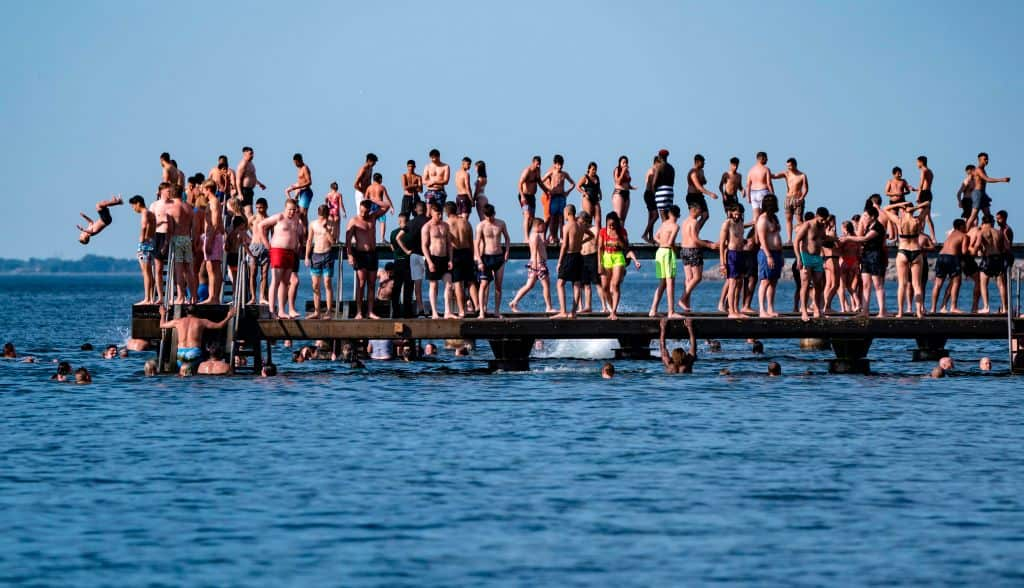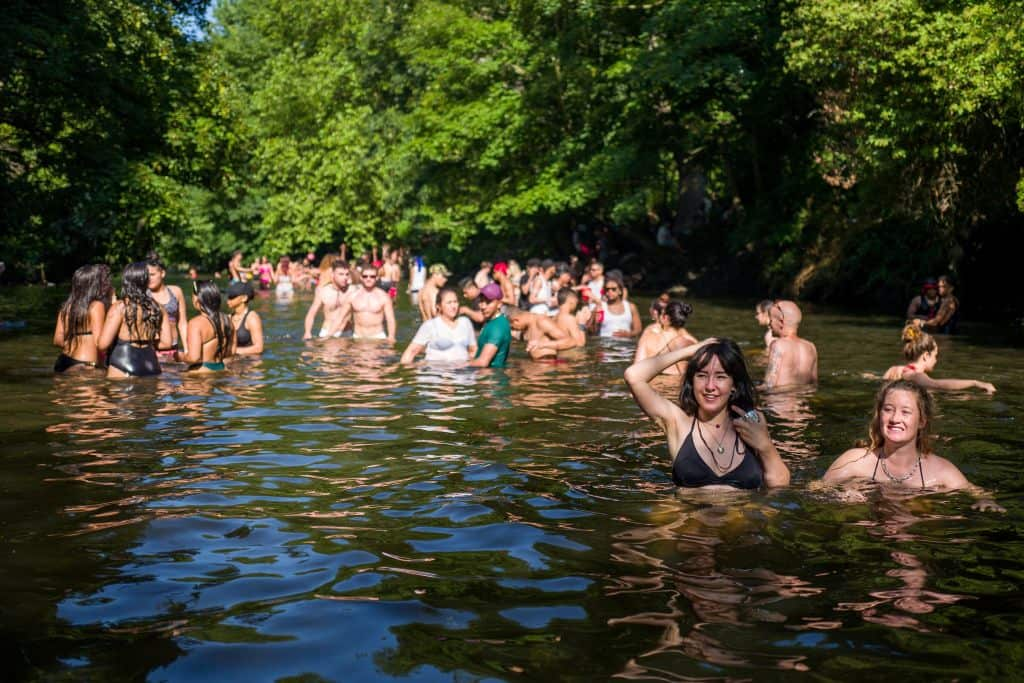Recently released from coronavirus lockdown, Europeans have thronged shady parks as temperatures soared on the second day of an early summer heatwave that experts fear will lead to new infections as people flout social distancing rules.
The European Meteorological Service issued a warning of extreme temperatures from the south to the usually cooler north of the continent - with "dangerous" heat forecast for parts of Spain where the mercury could climb as high as 38 degrees Celsius.
Seven other countries risked less extreme but "potentially dangerous" warm weather: Belgium, Estonia, Finland, Latvia, the Netherlands, Portugal and Sweden, it said. Brought to Europe by a high pressure system, this was a "short episode" of heat that will last only until the weekend, according to meteorologist Cristina Simoes of Portugal's Lusa weather agency.
Brought to Europe by a high pressure system, this was a "short episode" of heat that will last only until the weekend, according to meteorologist Cristina Simoes of Portugal's Lusa weather agency.

People jump off a jetty in Malmo, Sweden, during Europe's early-summer heatwave. Source: AFP
As the mercury started climbing Tuesday, beaches, parks and river banks saw an influx of hot and bothered Europeans, with images of large groups gathered often without masks or the required one-to-two-metre infection-safe distance between them.
In Britain, where temperatures are expected to approach - but not break - the 35.6C record set for June in 1976 - health officials have expressed concern about the continued defiance of social distancing requirements.
Local authorities in the popular beachside town of Bournemouth even urged people to leave the town after it became "stretched to the absolute hilt". Social care workers are also worried about elderly people shielding from the virus at home in the stifling heat.
Social care workers are also worried about elderly people shielding from the virus at home in the stifling heat.

Sun-seekers cool off in the water and sunbathe on the riverbank at Hackney Marshes in east London. Source: AFP
"It can be harder to spot someone who may be getting into difficulties and in need of extra help," said Caroline Abrahams, director of the Age UK charity.
Global warming
In France, the weather agency expected temperatures to exceed 30C in most of the country, going as high as 36C in the southwest.
Temperatures in the thirties in France are usual for the height of summer, around August, and not the beginning of the season, said climate NGO CARE.
"Over the past few years, we have noticed heat waves arriving ever earlier, everywhere in the world," it said in a statement, blaming global warming.
"A few days ago, a temperature of 38C was recorded north of the Arctic Circle! Such high heat phenomena could be twice as frequent by 2050, so we must expect summers to be ever longer and hotter, and therefore more deadly."
The World Meteorological Organization has said it was verifying the worrying temperature record for Siberia.

The Land Surface Temperature in Siberia on 23 June 2020. Source: ESA
The World Health Organization warned people to avoid exposure to the sun or temperatures higher than 25C "as there is no evidence that this prevents or cures COVID-19, and it increases your risk of sunburn and heat-related illness".
"You can catch COVID-19 no matter how sunny or hot the weather is, so protect yourself and others by washing your hands regularly, coughing into your folded elbow or a tissue, and avoiding touching your face," stated the WHO website.
People in Australia must stay at least 1.5 metres away from others. Check your state’s restrictions on gathering limits. Testing for coronavirus is now widely available across Australia.
If you are experiencing cold or flu symptoms, arrange a test by calling your doctor or contact the Coronavirus Health Information Hotline on 1800 020 080. The federal government's coronavirus tracing app COVIDSafe is available for download from your phone's app store. SBS is committed to informing Australia’s diverse communities about the latest COVID-19 developments. News and information is available in 63 languages at sbs.com.au/coronavirus
Share

